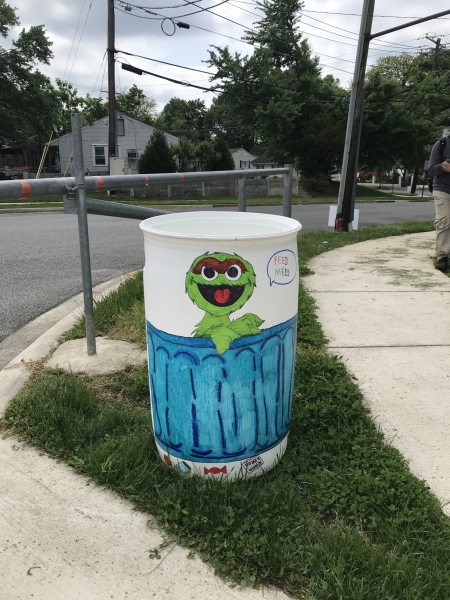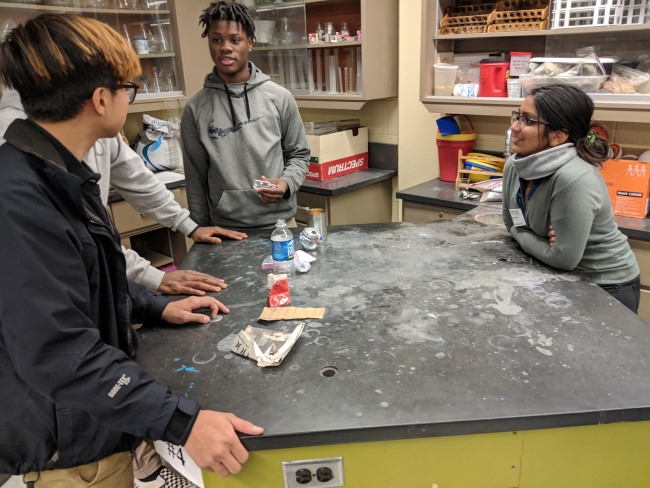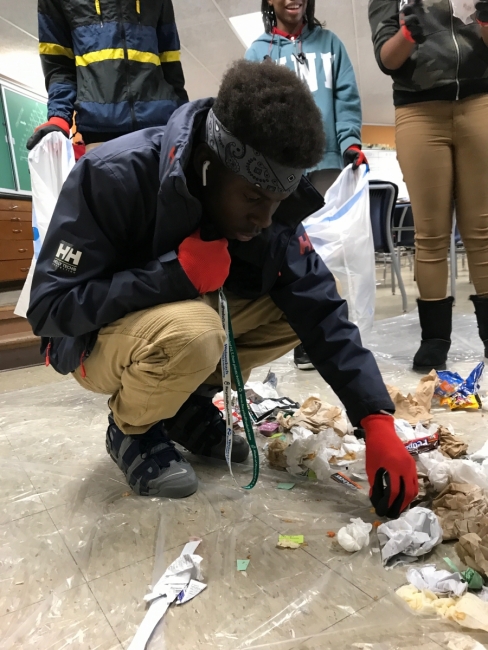By The Alice Ferguson Foundation
Students in Prince George’s County, Maryland are leading the way in marine debris prevention and cleanup in their community. Through the Alice Ferguson Foundation’s Watershed Leadership Program (WLP), more than 400 students from seven local high schools have learned about plastic pollution and executed school-based action plans to prevent marine debris
Thanks to support from the NOAA Marine Debris Program, the WLP builds on previously successful campaigns and school-based environmental education programming to train and equip students to lead community cleanups, pilot their own litter prevention strategies, and mentor younger students in their communities.
Students begin by participating in multiple classroom programs to learn about commonly littered items, understand the impacts of marine debris, explore the types of trash produced at their school, and brainstorm potential solutions.
After working in teams to draft proposals, students voted on action projects that would reduce marine debris. At Oxon Cove High School, students decorated and deployed multiple “Adopt a Litter” cans at litter hotspots on school property. By providing an opportunity for proper disposal, students hope to change littering behavior among their peers.

Students at Parkdale High School designed and posted signage around their school that encourages proper disposal of trash and recycling. They are also experimenting with using a basketball hoop to encourage the use of recycling bins.
At Fairmont Heights High School, students conducted a survey on student knowledge and attitudes about recycling. Based on their results, they designed an educational program to share with fellow students that encourages proper disposal of waste. Next school year, they plan to go classroom by classroom and share the presentation with their peers.
Students also had the opportunity to participate in peer-to-peer mentorship by leading a cleanup in partnership with a local elementary or middle school. These passionate young advocates were able to present their action projects to the younger students and share what they learned about the impact of marine debris with the broader community.
“My experience with leading the cleanup at the middle school made me realize how important it is to cleanup, because the students that were there looked up to us and saw that we wanted to make the earth a better clean place by picking up trash and recycling what needed to be recycled, and that motivated them to do it too,” said one student from Northwestern High School. “It was fun and exciting to go meet and teach the younger ones about the dangers of trash and how to prevent litter,” said another student.
The small changes by students at their individual schools are creating big changes throughout their community and making a big impact on their lives. Plans are already in place to expand the program next school year and engage more students in action projects. By equipping young people to be community leaders, the Watershed Leadership Program reduces littering behavior, prevents marine debris, and cultivates the next generation of ocean champions.


